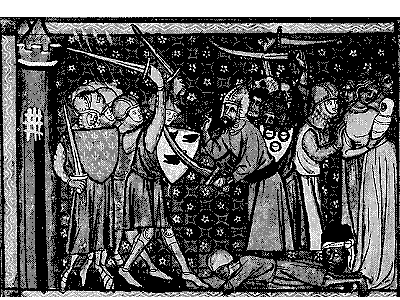The Eighth Crusade
The Eighth Crusade – launched by King Louis IX of France in 1270 – represented the last major crusade aimed at the Holy Land. It took place just 16 years after the Seventh Crusade and came about as a result of concerns over the decreasing power held by the remaining Crusader states.
In 1260, Mongol conquests saw Muslim Syria invaded by an army led by Hulagu Khan of Persia, who seized the cities of Aleppo and Damascus. Kitbuqa, the Mongol General, was Christian and set to work converting the mosques in Damascus into churches. This angered the Egyptian Mamluks who decided to try and kill the General. They succeeded, forcing the Mongols to return to Persia, allowing the Mamluks to seize Syria. They took many towns, including Jaffa in March 1268 and Antakya that same year. The ongoing situation prompted Louis IX to set to work arranging an eighth crusade in a bid to recapture the Holy Land.

The King opted to land first in Tunisia – mistakenly believing that the Bey of Tunis could be converted to Christianity and encouraged by his brother, Charles of Anjou, King of Sicily, to command the ports of Tunis, therefore making the conquest of Egypt easier. From there, he planned to march across Egypt to the Holy Land. However, upon arrival in Tunisia on 18 July 1270, it quickly became clear that it was not going to be possible to convert the Bey of Tunis. The city had been prepared to withstand an invasion, with a newly repaired city wall and warriors shipped in from Morocco. The Tunis Sultan’s men railed against conversion to Christianity and the Crusaders were hounded by local soldiers.
Louis’ army was ailing due to the lack of clean water to drink and the oppressive heat and his son, John Tristan, died of dysentery. The King himself died on 25 August 1270 from a plague, one day after his brother Charles had arrived with reinforcements and supplies for the army. Full control of the army and the Crusade was handed over to Charles. The last word spoken by King Louis was said to be ‘Jerusalem.’
Unlike Louis, Charles was a reluctant crusader and set about negotiating terms with the Bey of Tunis, as the ill health of his army had scuppered any chance of a successful siege of the city.
On 30 October, the Crusaders made an agreement with the Sultan to retreat, in exchange for free trade with the city and guaranteed residence for monks and priests in the area. A war indemnity of 210,000 ounces of gold and a doubling of the tribute paid to the King of Sicily were also included in the terms.
While the Crusaders attempted to carry on to Syria, a storm which broke out in Trapini saw many of their supplies and ships lost, and they were forced to return to France, a move which heralded the end of the Eighth Crusade.
The future Edward I of England arrived in Tunis following the end of the Crusade and travelled onto the Holy Land, continuing the campaign to recapture it until 1272, when the death of his father, Henry III, prompted his return to England.
The year 1291 eventually saw the end of the crusading era in the Holy Land, as a result of the fall of Acre, the last remaining crusader base in Palestine.
See also: The First Crusade and What was Gained from the Crusades
MLA Citation/Reference
"The Eighth Crusade". HistoryLearning.com. 2026. Web.
